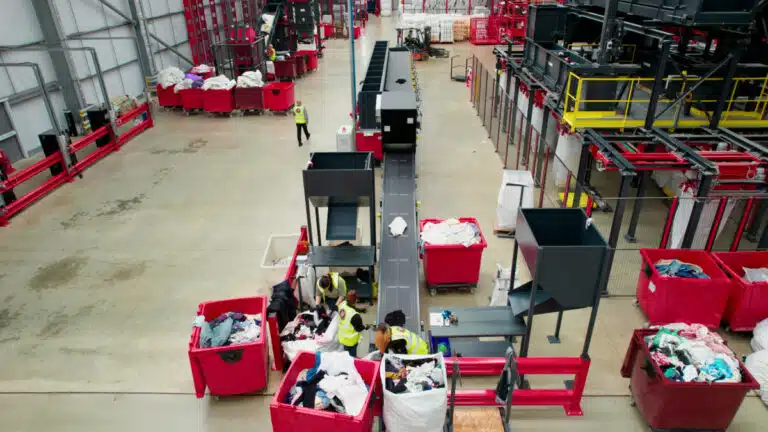SATCoL partnership with corporate wear producer develops way to recycle polyester textiles

The Salvation Army’s trading arm, Salvation Army Trading Company Ltd (SATCoL) and corporate wear producer Project Plan B have come up with a way to turn polyester textiles back into raw materials.
Project Re:claim is a joint venture between the two and has revealed plans for the first commercial-scale, post-consumer polyester recycling plant.
Project Plan B developed the polyester recycling system, which is based on plastic bottle recycling. The Salvation Army Trading Company Ltd (SATCoL) will install the machine at one of their Processing Centres which currently sorts and processes around 65,000 tonnes of donated textiles every year.
Advertisement
The new plant will recycle around 2,500 tonnes in its first year, rising to 5,000 tonnes in year 2, and aims to recycle polyester that has come to the end of its useful life. The technology creates polyester pellets and produces yarn from these.

Majonne Frost, Head of Environment & Sustainability at SATCoL, said:
“Last year SATCoL enabled reuse and recycling of over 250 million products but there are always items which are too damaged and we cannot resell and they are often garments made from polyester.
“With this new technology we can give these clothes a new lease of life. So when your favourite jumper is worn-out, we will take it and turn it into polyester pellets, ready to be turned back into a new jumper.”
Tim Cross, CEO at Project Plan B said:
“We need a seismic change in how garments are designed and produced. Polyester textile recycling is one of the biggest opportunities to reduce the harmful impact of producing garments and this new technology is the first proven commercial scale system that has been designed to cope with the challenges of recycling post-consumer clothing.”
The new technology will be installed at SATCoL’s Processing Centre based in Kettering in September, and SATCoL is searching for corporate partners to commit to donating 100% polyester textiles that it can recycle alongside clothing bank donations.
Frost added:
“Our vision is to enable companies to produce corporate wear and fashion garments using recycled polyester. The vision of Project Plan B has brought about the development of the technology, we have the infrastructure to collect donations at scale and we now need companies to step up. This is an opportunity for companies to make a commitment to significantly reduce their environmental impact. In preparation for full production, we are currently seeking 100% polyester textiles such as used hotel linen or post-event promotional banners.”
According to SATCoL, there are currently no textile polyester recycling systems in the UK, meaning the only option is to landfill or to burn these plastic waste textiles, while a tonne of new polyester clothing creates over 20 tonnes CO2e/T.



